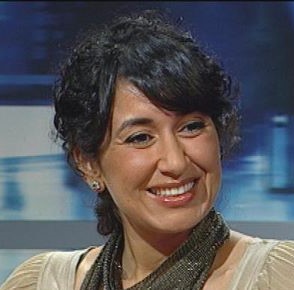Prof Miriyam Aouragh


Professor Miriyam Aouragh grew up in Amsterdam as a second generation Dutch-Moroccan. She has a background in cultural anthropology and non-Western sociology (Vrije Universiteit Amsterdam) and is a researcher at CAMRI. Aouragh has studied the implications of the internet as it was first introduced (“Web 1.0”) in Palestine (PhD, University of Amsterdam, 2000-2008) to understand in particular the significance of techno-social evolutions by analysing how a "new" technology coincided with the outbreak of a mass uprising (Second Intifada 2000-2005). Aouragh subsequently (Rubicon NWO) focused on the political role of new digital tools and spaces, such as how these earlier developments evolved to so-called "Web 2.0" as manifested through blogging and social networking and so-called “Web 2.0”. Her ethnographic fieldwork were conducted among grassroots activism in Lebanon and Palestine (Oxford Internet Institute, 2009-2011). Aouragh set-up a critical research project (Leverhulme 2013-2016) to study the Arab (Counter-)Revolutions. She relates critical theory with online-offline dialects. She was selected to become TNI Fellow in acknowledgement of her public impact (2023-2028), in 2023 she won a full fellowship for the Institute for Advanced Studies to work on a review of her research on Palestinian internet spanning two decades. In 2024 she received the Swiss Foundation grant (CO-I) for the international project lnfrastructural rehearsals: creative responses to the green and digital transition.
Apart from 4 books Palestine Online (IB Tauris 2011); (with Hamza Hamouchene) The Arab Spring a decade on (TNI 2022); Mediating the Makhzan about the (r)evolutionary dynamics in Morocco (forthcoming CUP) and (with Paula Chakravartty) Infrastructures of Empire (forthcoming), Miriyam Aouragh has written numerous chapters and articles (see Publications/Output).
Aouragh is Professor of Digital Anthropology with a specific focus on West Asia and North Africa. She studies the contradictions of capitalism shape the modes and meanings of resistance in the era of revolution and digital transformations. Her analyses is grounded in the complex revolutionary dynamics in the Arab world. In what she calls "techno-social politics" she studies a political temporality marked by revolution and counter-revolution. She wrote about the paradoxical context of online-revolution and cyber-imperialism. Throughout her academic projects she conducts extended fieldwork (Palestine, Jordan, Lebanon and Morocco), in order to relate participant observation and interviews to media analyses. Aouragh is involved in numerous international collaborations where the central focus revolves around solidarity, critical race, political-economy, empire and infrastructures.
Academic engagements
Miriyam was involved in Centre for Social Media Research was co-director of the Arab Media Centre from 2018-2020 with Tarik Sabry and Co-Lead Coordinator of the Global Media research group with Tarik Sabry. For the Arab Media Centre she co-organised the New Media-New Politics?. A selection of the papers and keynotes of this conference were edited and published (Aouragh and Iskandar 2014) in collaboration with the acclaimed e-journal Jadaliyya. For the Global Media group she co-organised the Mediating Race conference. Aouragh was part of TVRI (2014-2017), a team of international scholars working on an InterAsia media research project, funded by the Social Science Research Council. Together with Paula Chakravarty (NYU) and Jack Qui (Chinese University of Hong Kong), she coordinates the Media Empires group.
Aouragh sits on several editorial boards (CCC, Historic Materialism, Triple-C) and is co-director of Brismes Campaigns; Board Member of Labor-Tech and its Social Justice Working Group Coordinator; and co-director of The Institute for Technology in the Public Interest. In 2023 she received the NIAS fellowship and in 2024 she won the Swiss Foundation grant (CO-I) for the three-year project lnfrastructural rehearsals: creative responses to the green and digital transition.
Public engagement
Miriyam Aouragh engages in the public debate with regards to Big Tech capitalism, Middle East politics and Anti-racism. Her quest is to encourage a more critical understanding of the power relations in the media and political environments of her research. This includes pushing against the corporate cooptations of anti-racist themes (decolonisation as metaphor is meaningless when actual anti-colonial struggles are not supported) or the institutional appropriation of justice related politics (Equality or Diversity is meaningless when it does not challenge the structures of power that produce inequality), and requires raising awareness about existing struggles for a just and non-corporate ICT infrastructure, as well as unveiling undemocratic decision-making processes; it demands countering orientalist stereotypes regarding Arab and challenging the obsessive focus on Muslim subjectivities.
Some examples: